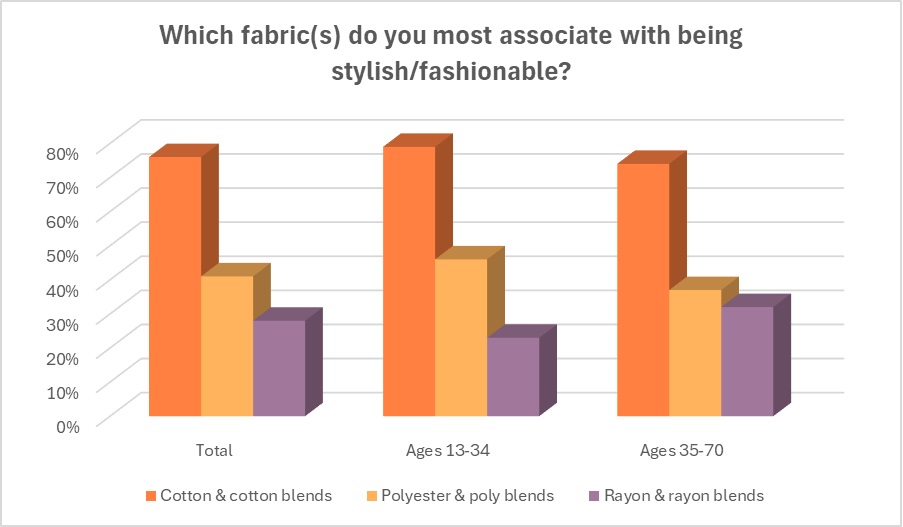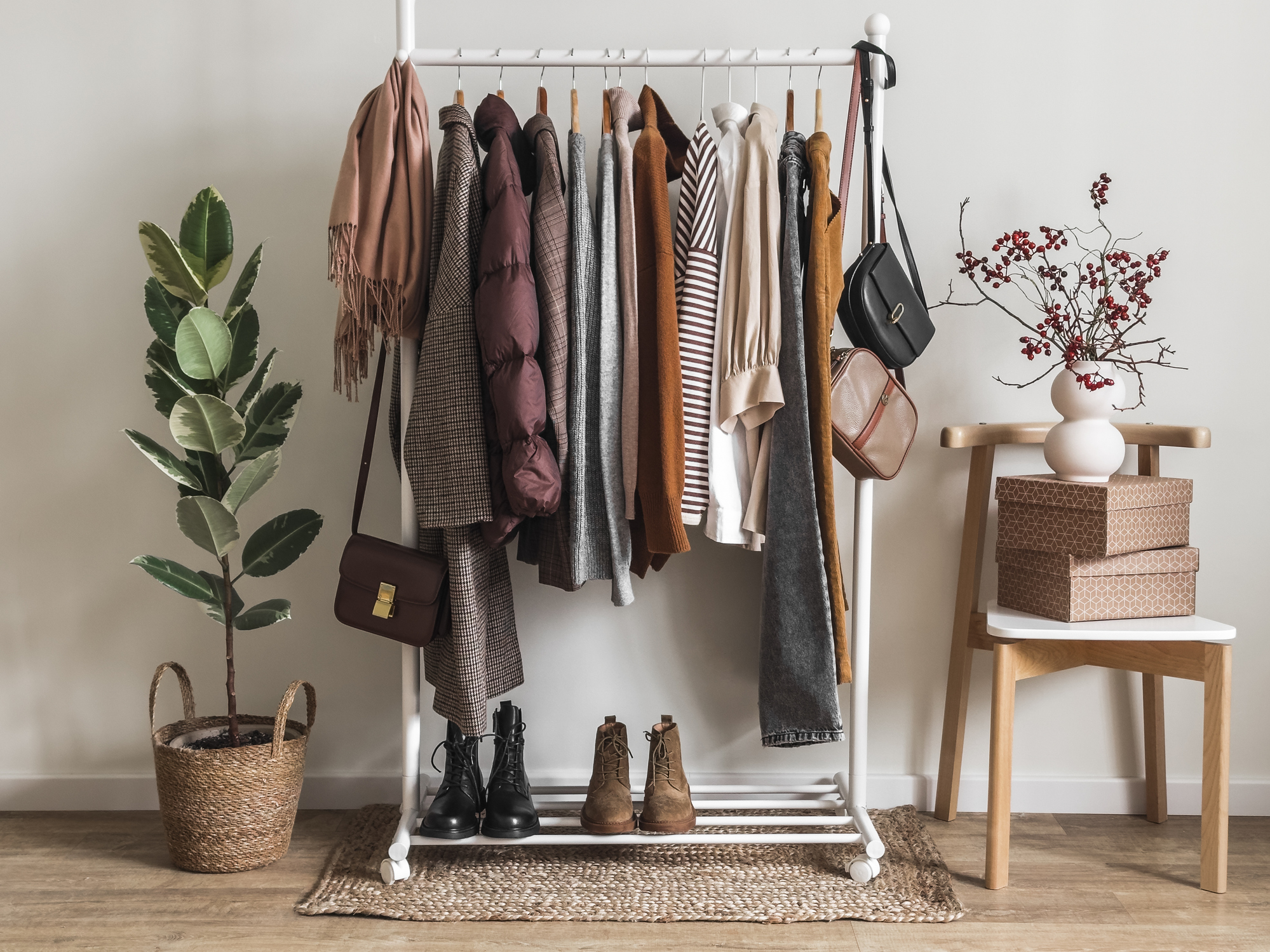It’s the end of the year, and while winter has many people dreaming of curling up with a soft blanket and a good book, the reality is usually mad dashes to stores, parties, school events, family gatherings and, oh yeah, work. Of course, that means versatile outfits that last all day and possibly into the night. And both consumers and designers say one particular fiber works well in today’s fashion landscape.
“Cotton is our go-to fabric for so many reasons,” said Naama Doktofsky, design director for Cartolina Nantucket in an interview with the Lifestyle Monitor™. “Its versatility makes it suitable for every season and can be worn year-round. Known for its soft feel, breathability and long-lasting durability, cotton is a fabric that will stay in your closet for many years. For us, the design process always begins with selecting the right fabrics, and cotton consistently plays a key role in each of our collections and an essential fabric in our designs.”
Today’s brands are all about storytelling, and cotton has a story worth telling – from how it’s grown to the countless ways it can be repurposed at the end of its life.
Megan Peterson, Director of Marketing and Industry Programs, Cotton Incorporated
During New York Fashion Week, designer Evan Hirsch showed a women’s collection inspired by his family home in the Dix Hills hamlet of Long Island, NY.
“I’m so nostalgic, and it was devastating to me that my parents were selling the house and moving to Florida,” Hirsch said in an interview with the Lifestyle Monitor™ after his NYFW presentation. “So, I took all the upholstery from the couches, drapes and everything I could find and created these looks from those fabrics. Not only were they all natural fabrics, but these textiles were born in the ‘80s so they were recycled and sustainable.”
More than three-quarters of consumers (76 percent) say they associate cotton and cotton blends with being stylish/fashionable, according to the Cotton Incorporated 2023 Global Lifestyle Monitor™ Survey. The majority of consumers (66 percent) say clothes made primarily from cotton is the most fashionable. And about 6 in 10 (59 percent) say cotton/cotton blends are the fibers best suited for today’s fashions.

While cotton is naturally associated with summer and spring offerings, it is currently on plenty of guides for holiday gifting. To wit, one editor’s excitement about a piece from Buck Mason.
“This sweater is definitely going to be a ‘one for you, one for me’ situation—the relaxed fit looks so comfy and, having tried a few of Buck Mason’s other 100 percent cotton staples, I know it’ll feel soft and breathable,” stated Pure Wow’s Natalie LaBarbera, assistant commerce editor, in the publication’s gift guide email.
Los Angeles-based Third Way, in its own gift guide suggestion, is promoting cotton-rich “versatile pieces that seamlessly transition from casual outings to relaxed evenings,” as ideal holiday men’s wear presents. Pieces include a 100 percent cotton Japanese French terry top with raglan sleeves and oversized chest pockets, a short-pile cotton velvet hoodie and a medium-weight, cotton twill overshirt.
And Lee is promoting “2000’s style” for winter in the form of denim maxi skirts paired with cotton long-sleeve shirts and oversized sweaters.
Cotton Incorporated’s Megan Peterson, director of marketing and industry programs, says cotton is a timeless fiber, valued year-round by consumers for its comfort, reliability and familiarity.
“Add to that its sustainability benefits, and it’s no surprise that cotton remains one of the most sought-after fibers,” Peterson says. “Today’s brands are all about storytelling, and cotton has a story worth telling – from how it’s grown to the countless ways it can be repurposed at the end of its life.”
Three-fourths of consumers (78 percent) say they are interested in clothing recycling as a sustainability initiative for the clothing industry, according to the 2024 Cotton Incorporated Lifestyle Monitor™ Survey. And the majority of consumers (83 percent) say cotton clothing is the most sustainable. According to Cotton Incorporated’s 2023 Global Sustainability Survey, 23 percent of consumers said sustainable means environmentally friendly, followed by long-lasting (23 percent), renewable/recyclable/reusable (13 percent), and can be used maintained/conserved/preserved (7 percent). And when consumers are mindful enough to take the time to read fiber content labels, fully 70 percent say they are looking for cotton or cotton blends, according to 2024 Monitor™ research.
And speaking of mindfulness, Cotton Incorporated recently collaborated with Melissa Wood-Tepperberg, founder of Melissa Wood Health, where the objective is to inspire intentional living and being present during the holiday season.
Wood-Tepperberg has built her community on the power of mindfulness and simple, intentional choices. Cotton, a timeless symbol of natural comfort and sustainability, amplifies this message by encouraging people to live more thoughtfully and authentically.
“Cotton is a reflection of intentional living,” said Cotton Incorporated’s Kim Kitchings, senior vice president of consumer marketing. “This collaboration with Melissa Wood Health highlights how something as simple as choosing natural cotton can bring us closer to a slower, more mindful way of life, while making sustainable choices that feel as good as they are meaningful.”
Cartolina’s Doktofsky agrees, saying customers are drawn to cotton fabrics because they’re timeless and versatile – true wardrobe staples that can last a lifetime.
“Take cotton poplin, for example,” Doktofsky says. “The crisp texture makes it perfect for both casual and more polished looks. Plus, cotton is incredibly easy to care for, which adds to its appeal. Some of our Cartolina classics in cotton are: the ‘Peggy Top,’ ‘Reese Top,’ and ‘Bonnie Dress.’ And stay tuned: our upcoming ‘Blanca Caftan’ is a beautiful cotton eyelet cover-up designed for resort wear, adding yet another piece to love and cherish.”
Besides being favorites among consumers while they’re being worn, Cotton Incorporated’s Jennifer Lukowiak, director of supply chain marketing, says consumers also appreciate that as a natural fiber, cotton is inherently circular and biodegradable. “Cotton can be recycled and used as a component in many household items including insulation, dog beds, and as an alternative to synthetic fiber fill for quilted fabrics.”
According to 2024 Monitor™ data, 15 percent of consumers say they are interested in recycling clothing into new clothing, while 11 percent say they are more interested in recycling clothing into new products other than clothing. And more than half (52 percent) say they are equally interested in either.
Doktofsky says Cartolina’s customers recognize the importance of sustainability – and that is reflected in the company’s offering.
“Sustainability is at the heart of what we do,” Doktofsky says. “As we continue to evolve, we’re committed to incorporating more natural fibers into each collection, ensuring that our designs are not only beautiful but also mindful of their environmental impact.”
